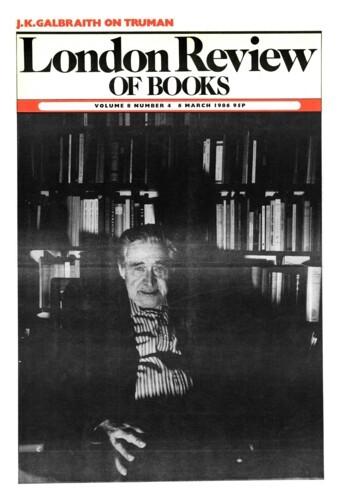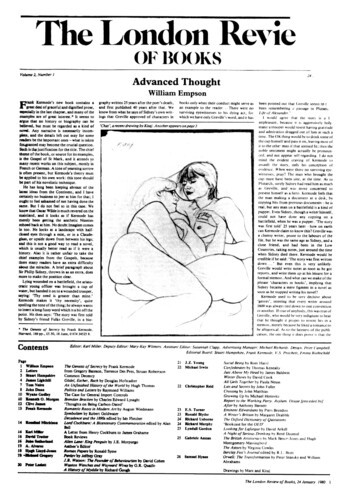English Butter
David Trotter, 9 October 1986
‘It angers me to pass a grocer’s shop,’ declares the impeccably fogeyish hero of Gissing’s The Private Papers of Henry Ryecroft (1903), ‘and see in the window a display of foreign butter. This is the kind of thing that makes one gloom over the prospects of England. The deterioration of English butter is one of the worst signs of the moral state of our people.’ Eighty years on, the prospects of England continue to be gloomed over. The evidence of deterioration mounts: not just butter now, but apples, cars, furniture. As for the moral state of the people ‘driving’ the cars and beating each other over the head with bits of the furniture … don’t even ask. Ryecroft’s hatred of a world in which an honest chap can no longer secure an ‘honest chop’ still plays its part in the politics of decline.




